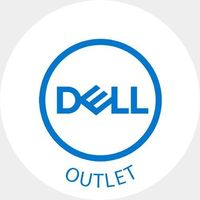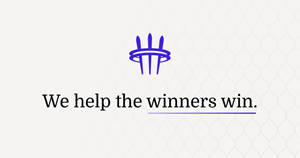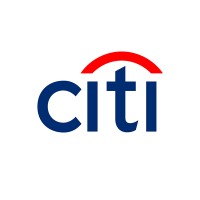AI Coding Giant Cognition Soars to $10.2 Billion Valuation
September 9, 2025, 3:39 pm

Location: United States, California, Fremont
Employees: 10001+
Founded date: 1984
Total raised: $360.05M
Cognition AI secured over $400 million in new funding. This catapults its valuation to $10.2 billion. It reflects immense investor confidence in its AI coding assistant, Devin. Devin propelled Cognition's annual recurring revenue from $1 million to $73 million in under a year. The strategic acquisition of Windsurf further solidified its market position. It now offers a comprehensive AI-powered software development suite. Cognition serves major clients like Goldman Sachs and Dell. The company plans to expand engineering and accelerate product innovation. It firmly establishes itself as a leader in the rapidly evolving AI software engineering landscape. This marks a significant milestone for the tech startup.
The artificial intelligence sector booms. Cognition AI stands at its forefront. The company recently closed a substantial funding round. It secured over $400 million. This investment pushed its valuation to an impressive $10.2 billion. Founders Fund led this significant capital influx. Existing investors also participated. Lux Capital, 8VC, Elad Gil, Definition Capital, and Swish Ventures reaffirmed their commitment. New strategic partners joined. Bain Capital Ventures, Hanabi Capital, and D1 Capital are now on board. This new valuation marks a sharp ascent. Earlier this year, Cognition was valued at $4 billion. The rapid increase highlights strong market belief. Investors see the immense potential in AI-driven software development.
Cognition's financial trajectory is remarkable. Its annual recurring revenue (ARR) demonstrates explosive growth. In September 2024, ARR stood at $1 million. By June of this year, it had soared to $73 million. This surge underscores the robust demand. Enterprises are adopting AI tools for coding tasks. Cognition's flagship product, Devin, drives this expansion. Devin is touted as the world's first AI software engineer. It automates complex programming tasks. This frees human developers. They can focus on higher-level architecture and creative problem-solving.
Devin's capabilities redefine software engineering. It scans code files for bugs. It generates step-by-step plans for tasks. It provides confidence scores. These scores indicate code usability. Developers use this to assess efficiency. Devin proactively reduces bugs. It performs tests on outputted code. This ensures reliability. The standard Devin offering is powerful. An enhanced enterprise edition exists. This version allows customized Devin configurations. Specific engineering tasks benefit. Additional cybersecurity controls are integrated. A comprehensive audit log ensures compliance.
A pivotal moment for Cognition came in July. The company acquired programming automation startup Windsurf. This acquisition was strategic. It immediately doubled Cognition’s overall annual recurring revenue. Windsurf offered a complementary integrated development environment (IDE). This IDE featured an AI tool called Cascade. Cascade provided intelligent autocomplete suggestions. It also accelerated other coding tasks. The Windsurf acquisition created a full-stack solution. Developers gained access to both synchronous IDE tools and asynchronous AI agents. This combination provides flexibility. Users can choose hands-on control or full task delegation.
The Windsurf deal had a backstory. Days before Cognition's acquisition, Google licensed Windsurf's technology. Google also hired much of its top talent. Cognition then acquired the remaining assets. This move proved highly beneficial. The combined product suite strengthened Cognition's market position. It broadened its customer base. Post-acquisition, Cognition's enterprise ARR grew by over 30%. This growth stemmed from successful cross-selling efforts.
Cognition's client roster is impressive. Major financial institutions utilize its technology. Goldman Sachs Group Inc. and Citigroup Inc. are among them. Leading tech companies also leverage Cognition's tools. Dell Technologies Inc., Cisco Systems Inc., and Palantir Technologies Inc. are key users. Other notable clients include Ramp, Nubank, and Mercado Libre. These diverse customers highlight the broad applicability of Cognition’s AI solutions. They demonstrate the value proposition for various industries.
Despite rapid expansion, Cognition maintains financial discipline. Its total net burn remains under $20 million since its founding two years ago. This fiscal prudence is rare for a fast-growing startup. It signals efficient capital allocation. The company's mission is clear. It aims for software abundance. Engineers transition from manual coding. They move to high-level strategy. Intelligent agents handle repetitive tasks.
The future is ambitious for Cognition. The company will use its fresh capital for aggressive expansion. Plans include growing its engineering team. This accelerates product development. Cognition also intends to develop new AI models. These models will optimize programming tasks. The company believes AI agents will become central. They will integrate into corporate technology stacks.
Cognition operates in a competitive landscape. Tech giants like Google, Microsoft Corp., and Amazon.com Inc. are building rival offerings. Despite these formidable competitors, Cognition distinguishes itself. Its specialized focus on AI software engineering provides an edge. Its rapid revenue growth and strategic acquisitions demonstrate agility. The company is positioned to lead. It shapes the next chapter of AI-driven development.
The journey began modestly. A small group of engineers coded in a New York apartment. Now, Cognition is one of the world's most valuable AI startups. Its scale has changed. Its mission endures. It seeks to build the future of software engineering. With new capital, a unified product suite, and a growing team, Cognition is poised for continued dominance. It stands ready to innovate. It will reshape how software is created globally.
The artificial intelligence sector booms. Cognition AI stands at its forefront. The company recently closed a substantial funding round. It secured over $400 million. This investment pushed its valuation to an impressive $10.2 billion. Founders Fund led this significant capital influx. Existing investors also participated. Lux Capital, 8VC, Elad Gil, Definition Capital, and Swish Ventures reaffirmed their commitment. New strategic partners joined. Bain Capital Ventures, Hanabi Capital, and D1 Capital are now on board. This new valuation marks a sharp ascent. Earlier this year, Cognition was valued at $4 billion. The rapid increase highlights strong market belief. Investors see the immense potential in AI-driven software development.
Cognition's financial trajectory is remarkable. Its annual recurring revenue (ARR) demonstrates explosive growth. In September 2024, ARR stood at $1 million. By June of this year, it had soared to $73 million. This surge underscores the robust demand. Enterprises are adopting AI tools for coding tasks. Cognition's flagship product, Devin, drives this expansion. Devin is touted as the world's first AI software engineer. It automates complex programming tasks. This frees human developers. They can focus on higher-level architecture and creative problem-solving.
Devin's capabilities redefine software engineering. It scans code files for bugs. It generates step-by-step plans for tasks. It provides confidence scores. These scores indicate code usability. Developers use this to assess efficiency. Devin proactively reduces bugs. It performs tests on outputted code. This ensures reliability. The standard Devin offering is powerful. An enhanced enterprise edition exists. This version allows customized Devin configurations. Specific engineering tasks benefit. Additional cybersecurity controls are integrated. A comprehensive audit log ensures compliance.
A pivotal moment for Cognition came in July. The company acquired programming automation startup Windsurf. This acquisition was strategic. It immediately doubled Cognition’s overall annual recurring revenue. Windsurf offered a complementary integrated development environment (IDE). This IDE featured an AI tool called Cascade. Cascade provided intelligent autocomplete suggestions. It also accelerated other coding tasks. The Windsurf acquisition created a full-stack solution. Developers gained access to both synchronous IDE tools and asynchronous AI agents. This combination provides flexibility. Users can choose hands-on control or full task delegation.
The Windsurf deal had a backstory. Days before Cognition's acquisition, Google licensed Windsurf's technology. Google also hired much of its top talent. Cognition then acquired the remaining assets. This move proved highly beneficial. The combined product suite strengthened Cognition's market position. It broadened its customer base. Post-acquisition, Cognition's enterprise ARR grew by over 30%. This growth stemmed from successful cross-selling efforts.
Cognition's client roster is impressive. Major financial institutions utilize its technology. Goldman Sachs Group Inc. and Citigroup Inc. are among them. Leading tech companies also leverage Cognition's tools. Dell Technologies Inc., Cisco Systems Inc., and Palantir Technologies Inc. are key users. Other notable clients include Ramp, Nubank, and Mercado Libre. These diverse customers highlight the broad applicability of Cognition’s AI solutions. They demonstrate the value proposition for various industries.
Despite rapid expansion, Cognition maintains financial discipline. Its total net burn remains under $20 million since its founding two years ago. This fiscal prudence is rare for a fast-growing startup. It signals efficient capital allocation. The company's mission is clear. It aims for software abundance. Engineers transition from manual coding. They move to high-level strategy. Intelligent agents handle repetitive tasks.
The future is ambitious for Cognition. The company will use its fresh capital for aggressive expansion. Plans include growing its engineering team. This accelerates product development. Cognition also intends to develop new AI models. These models will optimize programming tasks. The company believes AI agents will become central. They will integrate into corporate technology stacks.
Cognition operates in a competitive landscape. Tech giants like Google, Microsoft Corp., and Amazon.com Inc. are building rival offerings. Despite these formidable competitors, Cognition distinguishes itself. Its specialized focus on AI software engineering provides an edge. Its rapid revenue growth and strategic acquisitions demonstrate agility. The company is positioned to lead. It shapes the next chapter of AI-driven development.
The journey began modestly. A small group of engineers coded in a New York apartment. Now, Cognition is one of the world's most valuable AI startups. Its scale has changed. Its mission endures. It seeks to build the future of software engineering. With new capital, a unified product suite, and a growing team, Cognition is poised for continued dominance. It stands ready to innovate. It will reshape how software is created globally.

